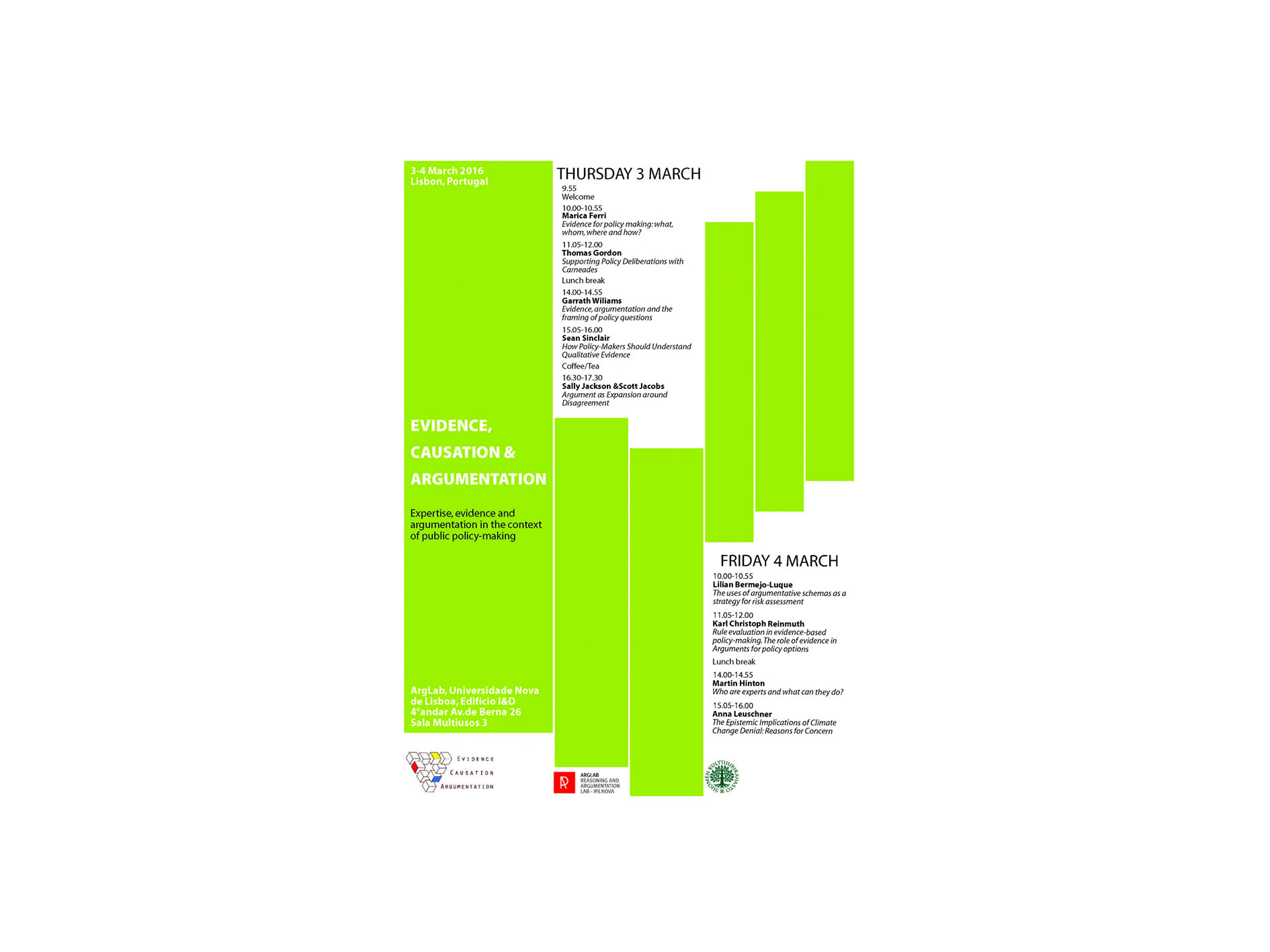ArgLab • Workshop
Expertise, evidence and argumentation in the context of public policy making

The Lisbon Workshop on Expertise, evidence and argumentation in the context of public policy making addresses the relation between evidence and policy-making from a philosophical, argumentative, and empirical perspective. The workshop is organized by the project “The Trinity of Policy-Making: Evidence, Causation and Argumentation,” funded by the Finnish Cultural Foundation, in cooperation with ArgLab, IFILNOVA, strategic project “Values and the Experience of Rational Decision Making,” funded by the Portuguese Fundação para a Ciência e Tecnologia.
Abstracts and other info here.
Background
Evidence-based policy-making rests on three pillars that correspond to interlocking phases of the policy-making process. The first pillar is the gathering of facts and evidence, which by themselves would be useless without the second pillar, i.e., the search for causal relations between inputs and outputs. It cannot suffice to know the facts, we also need to understand them in terms of useful relational laws or regularities, which can be employed to influence other facts, so that a policy may successfully intervene on a causal structure. But these two pillars are insufficient to support a policy if the arguments used in these first two phases aren’t both objectively strong and subjectively persuasive. The argumentative perspective thus constitutes a fundamental dimension to policy-making. Addressing the relation between evidence, explanation/prediction, and argumentation, the workshop brings sheds light on how evidence is selected, assessed and presented to support a policy, thus combining communicative, scientific, and political considerations.
Goals
The goal is to explore the notion of evidence in relation to its subjective components, expertise and argumentation, from an interdisciplinary perspective and both a theoretical and a practical point of view. Research questions addressed in this workshop include:
● What are the recent developments in the state of the art concerning policy-making arguments and policy-making processes?
● What problems are encountered in policy-making practices, considering various perspectives such as communication, argument production and evaluation, communicative protocols and strategies, etc.?
● How can argumentation studies address practical problems in policy making, such as argument and evidence analysis and evaluation?
● What is the exact role of expertise and argumentative reasoning for the evidential relation; e.g., can arguments be in any sense constitutive also of evidence itself, rather than only “channeling” the evidence onto the claim?
● Which notions of causality are normally presupposed in the contexts where evidence-based policy is conceived and deployed, and how do they affect the pragmatic aspects of explanation and the type of evidence generated by our research methods?
● What are the recent developments in the state of the art concerning policy-making arguments and policy-making processes?
● What problems are encountered in policy-making practices, considering various perspectives such as communication, argument production and evaluation, communicative protocols and strategies, etc.?
● How can argumentation studies address practical problems in policy making, such as argument and evidence analysis and evaluation?
● What is the exact role of expertise and argumentative reasoning for the evidential relation; e.g., can arguments be in any sense constitutive also of evidence itself, rather than only “channeling” the evidence onto the claim?
● Which notions of causality are normally presupposed in the contexts where evidence-based policy is conceived and deployed, and how do they affect the pragmatic aspects of explanation and the type of evidence generated by our research methods?
Date
03/04/2016 – 04/04/2016
Place
NOVA FCSH, I&D Building, Room Multiusos

